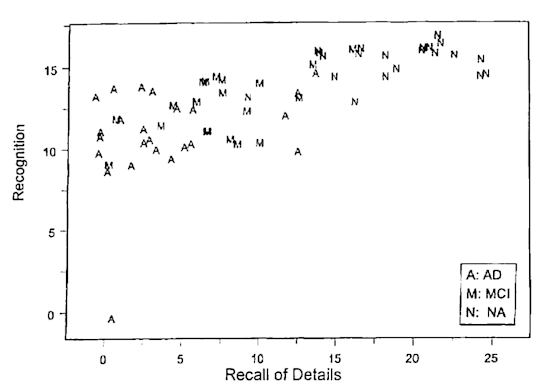Overview
The study establishes a diagnostic tool to enhance early detection of Alzheimer’s disease (AD). Early diagnosis of AD is key to preserving function and delaying later disease stages. Language-brain relations are found to be an indicator of early disease. By using discourse gist measures, it is possible to systematically examine information processes and flow. Detail-level and gist-level processing were examined by asking normal healthy controls and participants with AD and mild cognitive impairment (MCI) to retell an expository text they were given in their own words, give a summary statement, and come up with a lesson learned from the story. Results found that gist and detail levels of discourse processing were significantly impaired when compared to the control group. More importantly, gist-level impairments showed both sensitivity and specificity in distinguishing normal controls, from MCI and from AD. For future implementation, language processing measures can be used in diagnosing early AD.
Figure 2 displays the differences in the discourse gist measures of recognition and recall of detail between individuals with Alzheimer's disease (A), mild cognitive impairment (M), or a control (N).


